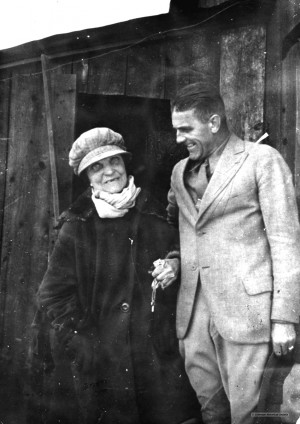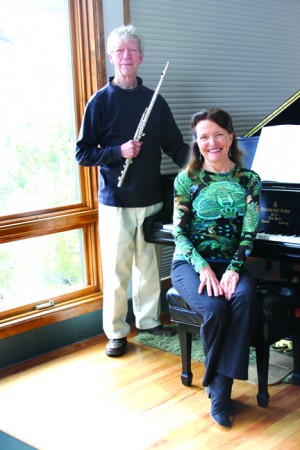by Christopher Kolomitz
With a majority of the hot topics finalized, state legislators are eyeing May 12, the scheduled end of the Colorado legislative session. As of the middle of April, more than 100 bills await signature by the governor and close to 600 bills had been introduced into the house and senate.
More rafting wrangling
After weeks of debate, outfitter rallies in Denver, a flurry of activity to place the issue on the November ballot, broken down negations and the intervening of Gov. Bill Ritter, state senators referred the “right to float” measure, or HB 1188, for study by Colorado Water Congress. The issue surrounds the owner/outfitter of Three Rivers Resort on the Taylor River and an out-of-state developer which has tried to close a 2-mile stretch of the river to rafting. The water congress is charged with studying the legal, economic, environmental, and law enforcement issues related to boating through private property.
The budget – $18.2 billion
Legislators passed an $18.2 billion budget for fiscal year 2010-11. The fiscal year starts July 1. Legislators needed to cut about $850 million to maintain a balanced budget. Among the cuts are $250 million reduction from K-12 education; a 2.5 percent reduction in take home pay for all state employees resulting in about $37 million in savings; Medicaid cuts of $17.9 million and a $61.5 million decrease in funding for higher education. Some programs were saved during the debate process including the Women, Infants and Children program, services for people with disabilities, about 20,000 preschool spots, full-day kindergarten and the Children’s Health Insurance Plan. Approval of the budget came with criticism from Republicans who said not enough had been done to prevent a “budget cliff” for the upcoming years when portions of federal economic recovery money runs out.
Coal emissions cuts aim for cleaner air
Coal fired power plants may be on the way out in Colorado after Ritter signed the Colorado Clean Air-Clean Jobs Act. The act requires Xcel Energy to cut nitrous oxide emissions by up to 80 percent from several Front Range coal plants by the end of 2017, most likely sooner. The bill was hailed by a slew of legislators from the Western Slope who liked the idea of new jobs created by an increased natural gas demand. One of the state’s largest environmental groups supported the effort as a way to reduce greenhouse gas emissions although some groups on the West Slope are concerned about the impact of more drilling for gas in the region. And, Xcel Energy threw its support behind it as a way to stay ahead of upcoming revisions to federal clean air standards. Supporters of the coal industry said there would be less mining and fewer jobs, and managed to throw somewhat of a block on the bill by convincing a majority of the Republican state senators to vote no. Xcel customers may see a rate hike because of the plant conversions, although that has to be approved by the public utilities commission which is set to debate the issue later this summer and fall.
Geothermal and biomass developments
High country legislators Christine Scanlan (Eagle County), Dan Gibbs (Summit County), Poncha Springs house member Tom Massey and Snowmass senator Gail Schwartz have been busy moving a series of conservation and renewable type bills. According to the Summit Daily News, SB 177 encourages the use of woody biomass for generation of electricity. Using woody biomass could produce clean energy and create demand in the marketplace for timber killed by mountain pine beetles. The bill would ensure biomass technologies are included under programs aimed at expanding clean and renewable energy. The Durango Herald reported under HB 174 geothermal heat would be subject to the same kind of property taxes as solar and wind energy. The bill also allows the state engineer to deny a geothermal water permit if it lowers the temperature in a spring with an existing right. Finally, the bill allows the owners of geothermal rights to use a surface owner’s land if a “split estate” situation exists, similar to gas and oil drilling on private land. Schwartz and Massey co-sponsored the bill, which has its roots in the proposed geothermal development in the Chalk Creek Valley west of Nathrop. The two bills await signature by Ritter.
Legislative short shots
• A new National Guard armory will be constructed in Alamosa following Ritter’s signature in early April. The bill calls for $4.7 million to be invested in the projects which include construction at Grand Junction and Windsor. About 80 soldiers serve in the Alamosa unit which was re-established recently after a four-year absence.
• Legislators are working to advance a bill that would require home builders to offer home buyers the chance to buy low low-flow toilets, high-efficiency washing machines, water-saving irrigation systems and other water-saving products.
• A quarterly revenue forecast issued in March by the General Assembly’s Legislative Council showed concerns with the slow pace of recovery. State economists predicted the continued slowdown and high unemployment levels are expected to last for at least two years. Additionally, a $579 million general fund shortfall is predicted for 2011-12.
• Supporters of the efforts to reduce the rate of interest payday lenders could charge won half the battle April 19 when the bill moved out of the house by a narrow margin. The bill limits lenders in Colorado to no more than a 45 percent interest on loans. The bill also limits them to charging no more than a $50 origination fee. Under current law, interest rates can exceed 300 percent as an annual percentage rate. Rep. Kathleen Curry of Gunnison, helped supporters obtain the necessary 33 votes to pass it, reported the Denver Post. The bill now moves on to the senate for consideration.
• Legislation that would allow grocery stores to sell full-strength beer, wine and hard alcohol passed its first hearing before the House Business Affairs Committee. Members approved HB 1279 that would allow grocery stores to sell full-strength beer, wine and hard alcohol. The legislation also increased the stipulation that a supermarket purchase a neighboring liquor store’s liquor license to the purchase of two liquor licenses. Further committee hearings were set for the end of April.
Christopher Kolomitz currently lives in Denver where he is recharging his batteries after a 10-year run in the newspaper business.


